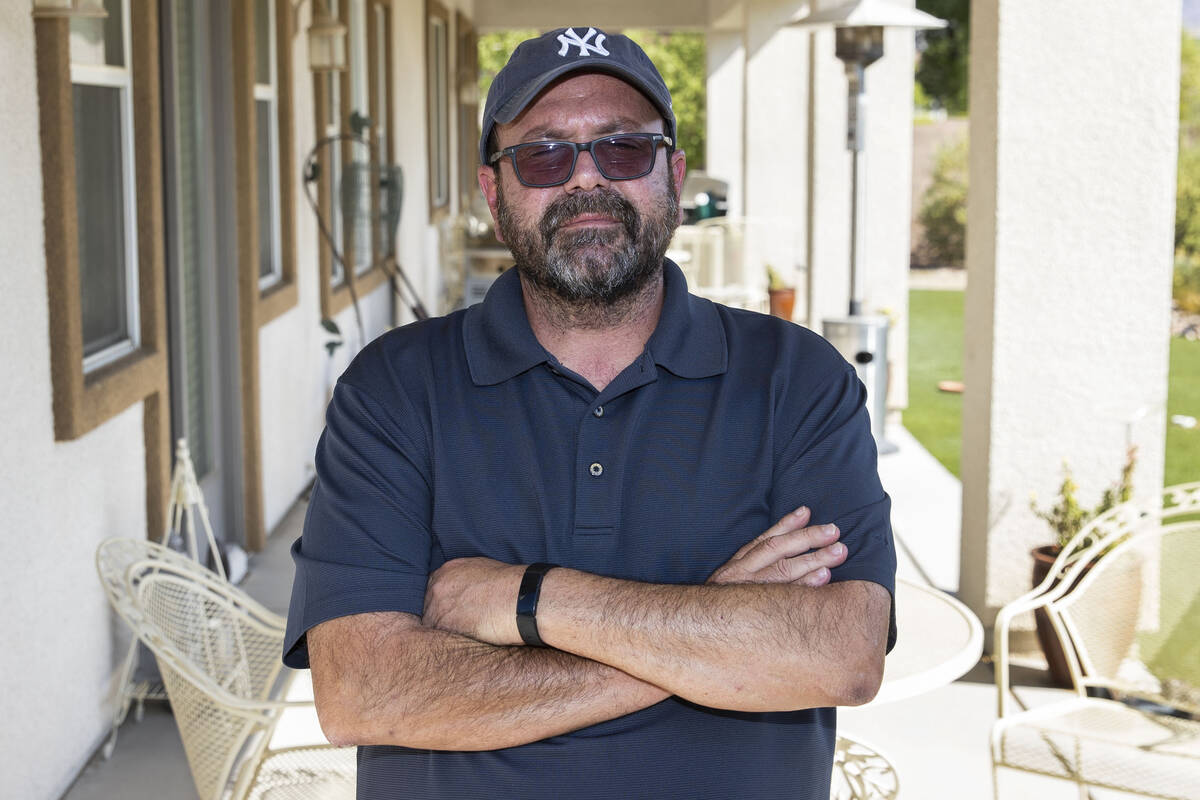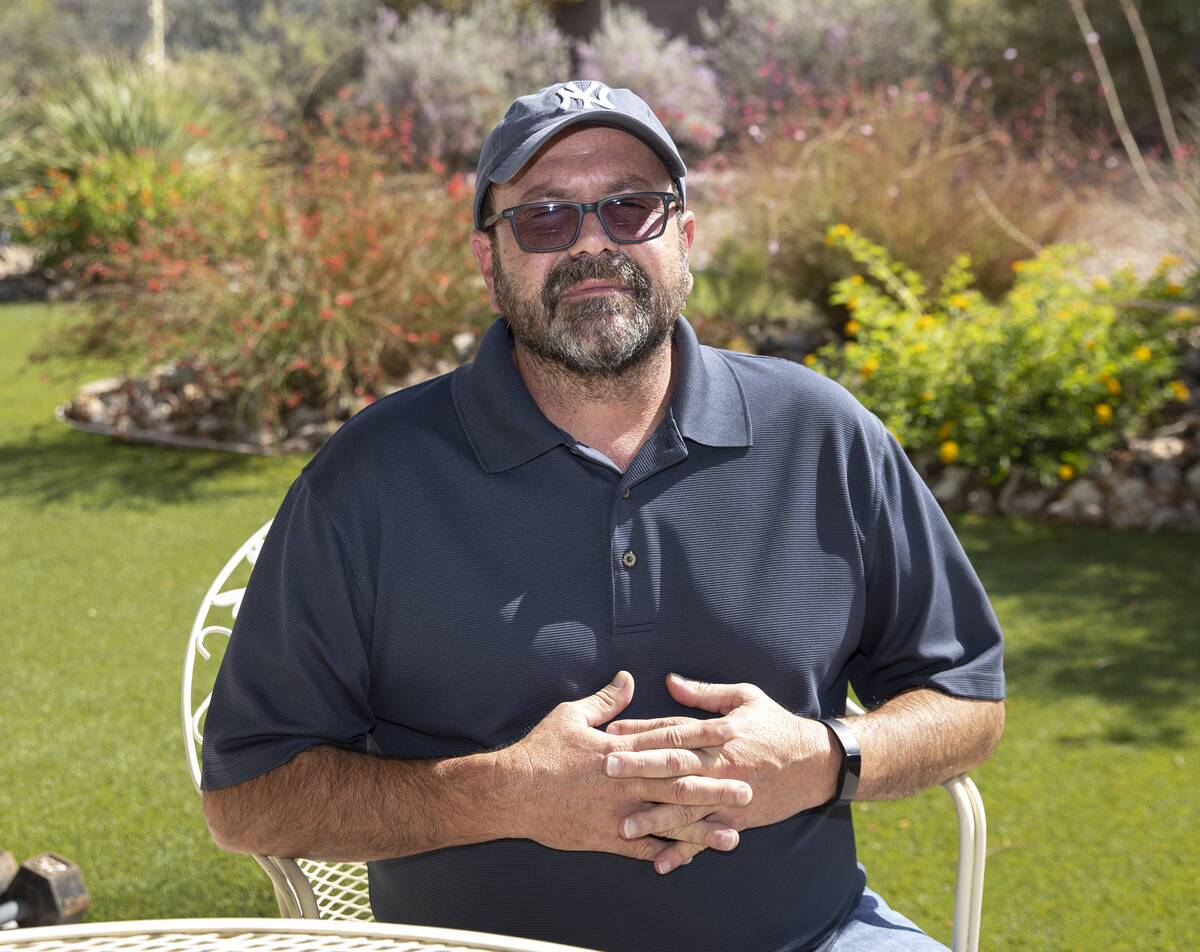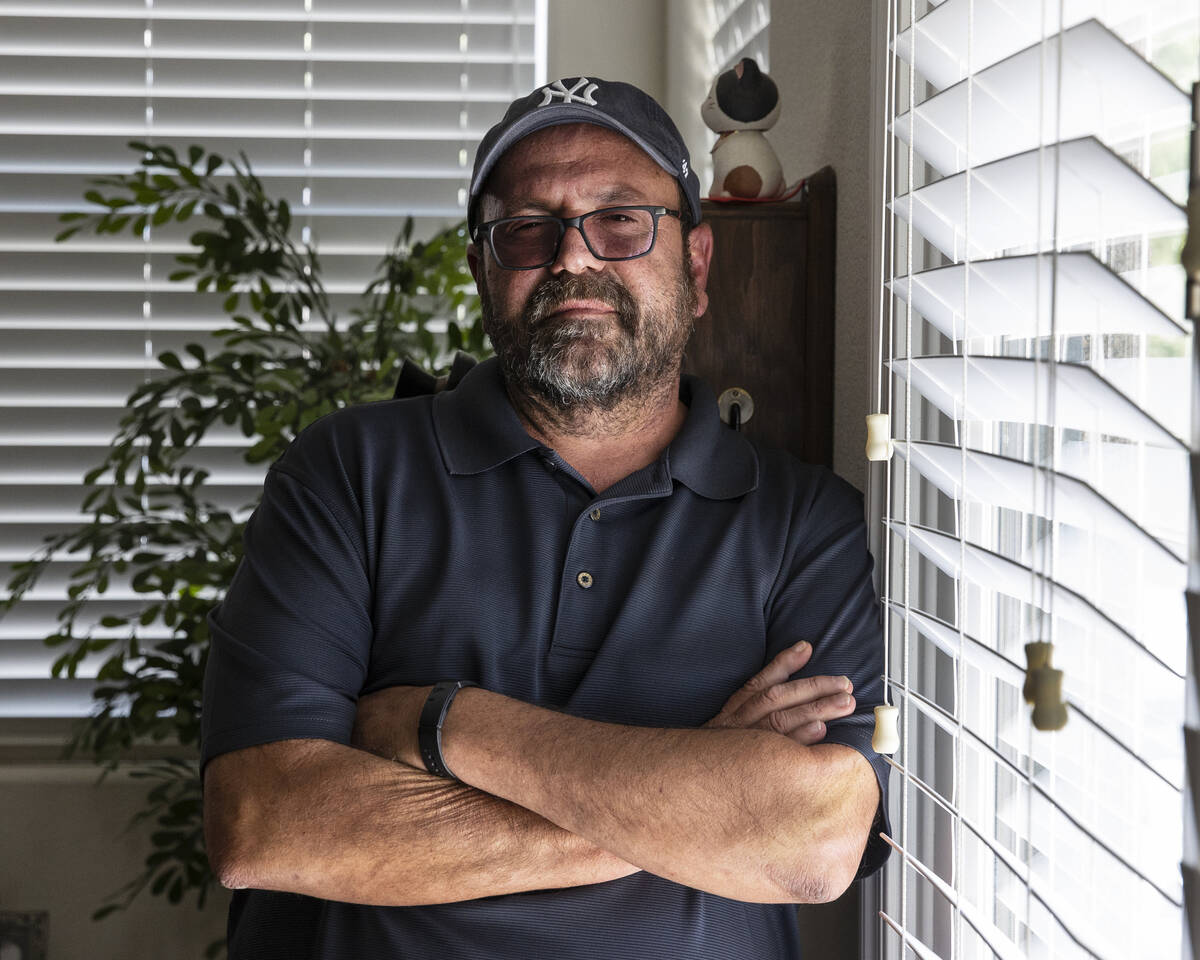Waiting more than a year for unemployment benefits, his savings are gone. He’s not alone.
Las Vegas resident Eric Riccardi hit a milestone last week. He has survived a year without receiving his unemployment benefits, but it cost him his savings and the recent sale of his rental property, which was to be his retirement income.
He hasn’t received his benefits because his account is under investigation by Nevada’s employment office after a fraudster filed a claim in March 2020 using his identity.
“It’s been a year since I’ve been trying to straighten this out,” he said. “Anytime that I’ve actually got through to them it’s been, ‘Don’t call us. We’ll call you.’ Then you sit there with the phone on and it’s the phone call that never comes.”
Federal unemployment benefits for Nevadans are winding down this Labor Day weekend. But more than a year after the benefits were implemented, claimants are reporting many of the same problems that plagued the Department of Employment, Training and Rehabilitation at the beginning of the pandemic such as busy phone lines, payment delays and hacked accounts.
“I try to keep it together,” said Riccardi, a former salesman for a commercial HVAC manufacturer. “I try to keep a sense of humor about everything. I’ve been binge watching Mystery Science Theater 3000.”
DETR Director Elisa Cafferata said the department is working quickly to resolve claimants’ issues as well as backlogs and appeals.
“One of the things we want people to know is they will get paid benefits for all of the weeks that they are eligible for, and we are working through cases in the order that they came in,” said Cafferata. “We know it is frustrating.”
Changes ahead
The unemployment office was overwhelmed with Nevadans trying to file for benefits when Gov. Steve Sisolak mandated the shutdown of casinos and nonessential businesses on March 15, 2020.
By the end of the week, DETR reported the most unemployment insurance claims in state history. It reported 92,298 regular initial claims for the week ending March 21, 2020. The previous high was 8,945 for the week ending Jan. 10, 2009.
Stephen Wandner, economist and senior fellow at National Academy of Social Insurance, said the number of unemployed workers took off so steeply it’s no surprise states were struggling.
“In most states, the systems are very old and they’re very hard to reprogram (and) things exploded so fast that it’s a game of catch-up that will take a while,” he said.
Cafferata said DETR is taking steps to overhaul its unemployment system after the state earmarked up to $54 million of American Rescue Funds in June to be used for modernizing the department.
“Prior to the pandemic, we were dealing with 3 percent unemployment,” she said. “The lesson learned is we have to be able to scale very quickly because economic dislocations could be much worse and more suddenly than we previously anticipated.”
She said DETR has contracted with Washington, D.C.-based nonprofit Center for Employment Security Education and Research to create a request for proposal, adding that it’ll likely take up to six months to complete. Once the proposal is done, the department will sign on a vendor to help implement the changes.
Missing funds
The much-needed improvements are encouraging, yet filers including Las Vegas resident Mark Loomis say it’s coming too late.
“I cannot contact them (DETR),” said Loomis. “It’s just mind-boggling. You can’t get ahold of them whatsoever. Their phones are worse than they’ve ever been through this whole pandemic.”
He received a “pending resolution” notice on his account in May, but he has been unable to clear the problem to resume his weekly benefits.
The delay has left him unable to cover his rent, especially since his only monthly income is $1,000 from Social Security. He’s now preparing to be homeless after his landlord’s eviction notice was granted by the Las Vegas Justice Court last month, despite a pending CHAP application for rental arrears of $4,200.
“My cats to animal control and me to a shelter,” said Loomis. “Somewhere down the road, years from now, I’ll get backpay. That’s the best I probably could look forward to.”
Alan Mendelson, whose benefits under the Pandemic Unemployment Assistance program will expire Saturday, had his own close call last month. He nearly missed his weekly benefit payment when his account was hacked twice within three days, noting his banking information was changed to Wells Fargo with a routing number in Minneapolis.
“I can’t believe the guy (fraudster) did it with only three weeks left of PUA,” said Mendelson, who was able to regain access to his account shortly after the hacks.
“(DETR) was doing the right thing … and it wasn’t an email with somebody saying we’ll get back to you in six months,” he said.
But Mendelson said he’s baffled the fraudster made it through the department’s two-step verification system, implemented this year to prevent fraud.
‘Collateral damage’
Riccardi filed for unemployment insurance in August 2020, after he was laid off, but was unable to create an account.
After a month of calling, he was able to reach DETR and was told to file a fraud complaint because a person with an Illinois address collected benefits under his name from March 2020 to July 2020. But it took another six months, or until March 2021, and about 3,000 phone calls to reach DETR for an update on his fraud complaint, Riccardi said.
At the time, the representative restored Riccardi’s account and mailed his unemployment insurance card with the back payments added, totaling more than $20,000.
“He said after Saturday midnight, go back into your account and continue your weekly claim. I went into my account that Sunday and I saw that they never changed my address. It still had Atomic City, Illinois,” said Riccardi.
It took another five months before he could reconnect with DETR, adding that he finally spoke with DETR’s fraud department last week and was told DETR would follow up Monday. He said he’s still waiting for the phone call.
“Everyone (at DETR) says you were a victim of fraud,” said Riccardi. “No, I’m not. The state was a victim of fraud. I was just collateral damage.”
Riccardi said he was forced to sell his northwest Las Vegas rental property in June, after emptying his savings.
“That house was my investment for my retirement. I didn’t want to sell it,” he said. “But the housing market in Las Vegas really took off and I thought maybe it’s not a bad idea because I have no income.”
He’s hoping the proceeds will give him enough time to find a new job, though he’s skeptical he’ll find work. Riccardi suffered a stroke last year shortly after landing in the intensive care unit at University Medical Center with COVID-19.
“It left me with a limp and a stutter but that doesn’t keep me from looking for work,” he said. “I’ll look for work, but it doesn’t change the fact that it’s been a year and I’ve never been able to collect my benefits.”
Contact Subrina Hudson at shudson@reviewjournal.com. Follow @SubrinaH on Twitter.

























